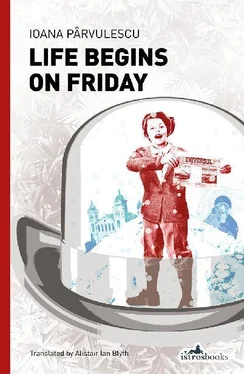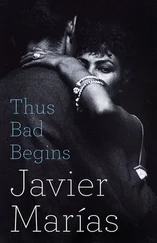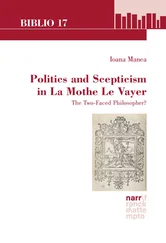On this occasion the agitated young man with the lizard-like gait bade good morning in a rather insulting, lofty manner.
‘Good morning, young sir,’ replied the doorman.
The expression on Nicu’s face showed that he was unsure whether the young man warranted a reply. But then, thinking of his teacher (‘you, young man, are not well raised!’), he decided to back up the doorman and said as ironically as he could: ‘Good morning, young sir !’
The lizard looked at him in amazement, but Nicu wasted no more time.
‘Has the wallet been found?’ asked Nicu, and the extremely acute angle of his eyebrows revealed his alarm, albeit for the opposite reason than would have been appropriate. In that moment the doorman said: ‘Will you be repeating the announcement?’
‘No… yes… we will repeat it,’ said the young man. ‘Do not get up, I know the way,’ he added, and sidled swiftly in the direction of the office he had visited a few days before, to pay for a whole week’s worth of announcements.
‘I think it must be something very valuable,’ mused the doorman, and then Nicu revealed his secret to him, after begging him in the name of all that was holy not to tell anybody: it was without doubt a ticket for the New Year lottery. Then, they returned to what they had been doing and old man Cercel started to read aloud in that flat way of his: ‘‘Important!!’ — Two exclamation marks. ‘At the offices of Universul newspaper, No. 11 Strada Brezoianu, any watch, pendulum clock et-ce-te-ra can be repaired more cheaply than anywhere else. Regular time keeping guaranteed for one year and…’ listen to this ‘…in the contrary case, further repairs will be free of charge ’! My wife has a pendulum clock from my father-in-law, which doesn’t work. I’ve brought it here twice already, now they tell me not to bring it in any more, because not even Edison himself could repair it. But you’re not interested in that, because you don’t have a clock.’
Nicu shrugged regretfully, with a look on his face like that of a beaten dog. He sometimes liked to exaggerate misfortunes in order to receive more compassion. He was stocking up on sentiments.
‘Look, here’s one for you,’ said the doorman quickly: ‘THINGS FROM ALL OVER THE WORLD: The record for skating. We bring to the attention of amateurs and pro-fe-ssi-on-als that the world record for patinage has for the last three years been held by a young English ska-ter , Mr Harry Tay, who, putting on his skates at ten in the morning, managed to skate for the whole day and the whole night until the next day at the same time…’ they mean ten in the morning, that’s twenty-four hours, you understand ‘…without stopping for a single moment. Not only did Mr Tay not stop for a single minute during his hours of varied ex-er… ex-er-ci-ses on ice, but also he neither ate nor drank…’ good grief! don’t let anybody ever try to make me do that…‘nor drank during this in-ter-val.’ It says he’s the champion skater and that he went round and round in a circle, for six hundred kilometres.’
‘How many kilometres do you think the hour hand on your pendulum went round in a circle for?’ asked Nicu. ‘Probably its skates broke and it got tired, poor thing, and that’s why it won’t go any more. I don’t understand what time is, do you?’
‘No. Let me tell you another one, for when you get married. A LECAR… RECALCITRANT FIANCÉE — they mean a restive mare, say I. ‘A few days ago, according to the United States Courier , a big wedding was to take place in Ood-la… Voodlavn, one of the most important districts of the city of Chicago.’ And look how it ended: ‘The marriage of Mr Tho-mas Leo de de Shong and Miss She-perd had been arranged when the girl was just eight-years-old.’’
‘The same as me,’ rejoiced Nicu, who was highly sensitive to news about love. ‘Do you think I should be looking for a fiancée? My gran always used to talk to me about getting married.’
‘Let me finish: ‘The engaged couple had lived apart for many years without seeing each other, and when Mr De Shong arrived in Chicago to get marry, Miss Shep-herd, undoubtedly finding that her fiancé did not live up to the ideal she had created for her future husband, ob-sti-nate-ly refused to marry him. And now the ceremony has been postponed until the Greek calendars. The Greek calendars? The Greek calends .’ Which is to say, forever,’ explained the doorman, although he would not have been able to explain what the calends were.
‘In other words, never!’ explained Nicu, but with regret, as if it had been his own wedding.
And the boy marvelled at how forever can mean the same thing as never and imagined that forever was a mountain peak as high as the Himalayas and never a bottomless pit.
*
‘I am somewhat surprised that you have not heard of the Lahovary case, no matter where you lived until now. L’Indépendance Roumaine is also published for foreign readers, in Europe’s best-known language. Or perhaps you were not interested in news about Romania…?’
In the office of Mr Peppin Mirto, the door was ajar, to allow air to enter. The truth was that Mr Crețu, who, whether he liked it or not, now shared an office with him, had brought in a whiff of perspiration. Peppin looked at Dan, who had become tense, his face had darkened, and so Peppin hastened to explain, in a tone of great amiability: ‘George Lahovary was, I am sure, a man of character. You see, this year, in January, just before Unification Day, L’Indépendance published a letter from him, worded with the greatest respect, but also with firmness, addressed to the leader of the Conservative Party, the venerable Mr Lascăr Catargiu. Lahovary was also a Conservative, a member of their executive committee in fact, and in his letter he announced his resignation. You will ask me why,’ said Peppin, precisely because Dan had not asked. ‘Because monsieur Georges Lahovary announced, en français that he was beginning, ‘in good faith and without partiality,’ a campaign that he considered to be vital to his country, Romania, one that was above the daily, petty polemics of the gazettes. And here came the thunderbolt…’
Peppin lit a cigarette, offering Dan one from his tin. The aromatic smoke attenuated the reek of sweat.
‘The campaign in the Frenchies’ newspaper — I think you have seen the firm, it is in that yellow building with the clock that has a cast-iron soldier and its own post box, which is to say, their correspondence is collected from there — the campaign was an unsparing series of essays which formed an analysis of the political parties, of the clubs, which govern political life, and an examination of the press servile to the parties. Oh, the part on the press is awful, on my word! You ought to read it! It rocked the industry to its foundations. Luckily we are not a political paper; we started out as an advertiser, which is how we gained our readership. But above all else, it was a critique of the current Constitution and today’s parliamentary system.’
Two young women passed by the half-open door, and Dan’s eyes lingered on one of them, who even stopped by the doorway for an instant, before walking away, towards the stairs. It seemed to him that he had seen her somewhere before.
‘That was all the newspapermen needed. It was as if somebody had set them ablaze. They blackened the name of Lahovary and his newspaper along with him. Some said he was “in the pay of the French,” others that he was in the pay of the Russians, still others that the King had bought him, newspaper and all, so that he could turn Romania into a despotic state. Some even called him “a pathological case.” I believe that we, and Constituționalul in Jassy were the only ones not to attack him. They reviled him and showed no sign of letting up. And do you know what Lahovary did?’
Читать дальше












